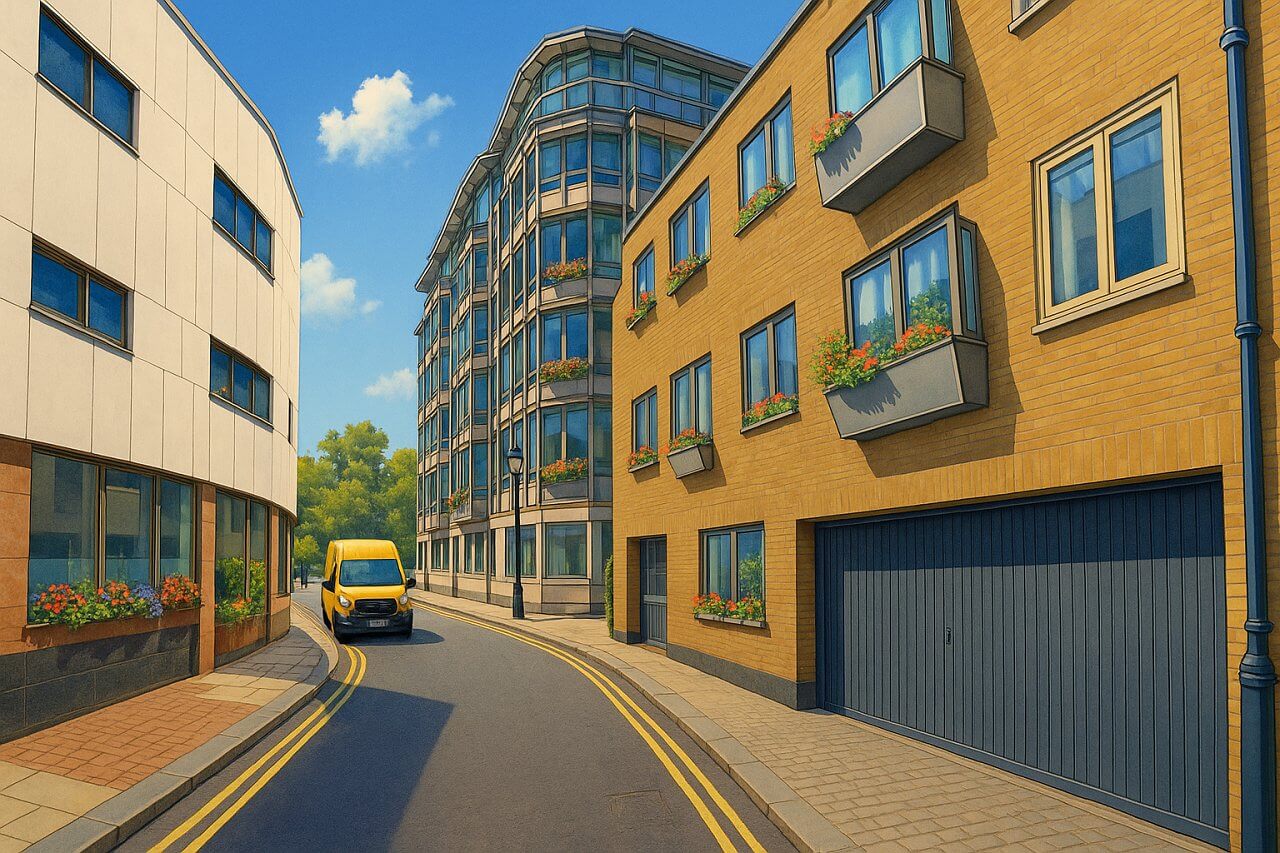
Pitt's Head Mews, London
Pitt's Head Mews is a quiet and understated street located in the heart of Mayfair, part of the distinguished City of Westminster in London. This small, discreet mews connects Park Lane on the west side to Stanhope Row on the east, placing it just steps away from some of the most prestigious addresses in central London. Though modest in size, the street possesses a unique blend of history, residential elegance, and proximity to major landmarks of the West End.
Overview and Character
Hidden just behind the grandeur of Park Lane, Pitt's Head Mews is a short, cobbled mews that embodies a quiet, private character amidst one of the busiest and most affluent parts of London. This traditional mews street is lined with a few converted coach houses and discreet residential properties, typical of the area’s architectural past. While the buildings are low-rise, usually no more than two or three storeys, the area boasts a feeling of exclusivity and old-world charm.
The street’s seclusion and tucked-away layout make it a desirable address for those seeking privacy and security. The proximity to Hyde Park, luxury hotels, and high-end restaurants only enhances its quiet appeal. The atmosphere here is calm and almost village-like, despite being surrounded by the bustle of Mayfair and Park Lane.
Origin of the Name
The name "Pitt's Head Mews" is believed to derive from a local public house that once stood in the area—likely named in honour of either William Pitt the Elder or William Pitt the Younger, both of whom were British Prime Ministers in the 18th and early 19th centuries. It was not uncommon for London streets and mews to be named after inns, especially those that acted as social or logistical hubs during the era of horse-drawn travel.
History and Development
Like many mews streets in the Westminster area, Pitt's Head Mews was originally constructed in the 18th or early 19th century as a service lane behind grand townhouses, where stables and carriage houses were located. Over time, the mews were gradually converted into residential dwellings, especially as the reliance on horse-drawn carriages diminished. Many of these conversions occurred in the mid to late 20th century, with renovations respecting the street’s heritage while incorporating modern comforts.
Nearby Roads and Neighbourhood
Pitt's Head Mews is situated between Park Lane and Stanhope Row, with Market Mews to the north and the eastern end of Piccadilly and St James's just a short walk away. This grid of mews and lanes is characteristic of historic Mayfair, where grand boulevards are accompanied by narrow service streets.
The surrounding neighbourhood is dotted with embassies, private members' clubs, and luxury hotels. Walking along Park Lane offers views of Hyde Park to the west and leads down to Hyde Park Corner and Marble Arch, depending on direction.
Nearby Sights and Attractions
Though Pitt's Head Mews itself is residential and quiet, it is surrounded by many notable attractions:
- Hyde Park – Just across Park Lane, Hyde Park offers expansive green space, walking trails, the Serpentine Lake, and the iconic Speakers’ Corner.
- Apsley House – The historic home of the Duke of Wellington is a few minutes away and open to the public as a museum.
- Mayfair's luxury retail streets – Bond Street and Mount Street are within walking distance, lined with designer boutiques and fine dining.
- Grosvenor Square – A central square in Mayfair, often associated with American diplomatic history.
Real Estate and Property Value
Property in Pitt's Head Mews commands a premium due to its prime location and private character. As of early 2025, mews houses here range between 1,200 to 2,000 square feet (approximately 111 to 186 sq metres). Prices typically start at around £3.5 million for a modest two-bedroom conversion, with larger or more modernised properties reaching upwards of £6 million. This positions the area well above the average property value in Greater London, where the typical home price is under £600,0001.
Rental prices are similarly high, with monthly rents starting at around £7,000 for small mews homes. The exclusivity and privacy of the street make it appealing for diplomats, business executives, and international buyers seeking pied-à-terre residences.
Transport Links
London Underground
The mews is well served by several London Underground stations, offering access to numerous London Underground Stations:
- Green Park Station – about 8 minutes' walk away, served by the Jubilee Line, Piccadilly Line, and Victoria Line.
- Bond Street Station – about 12 minutes’ walk, served by the Central Line and Jubilee Line.
- Oxford Circus Station – within 15 minutes’ reach, served by the Bakerloo Line, Central Line, and Victoria Line.
Bus Routes
Bus stops along Park Lane and Piccadilly offer quick access to central London routes. Major lines include:
- Route 2 – Victoria to Marylebone
- Route 9 – Hammersmith to Aldwych via Hyde Park Corner
- Route 14 – Putney Heath to Russell Square
All stops are within a 3–5 minute walk from the mews.
Fun Fact
Despite its quietness today, Pitt’s Head Mews was once home to a working-class community of stable hands and coachmen. Its narrow entrance and concealed layout made it a perfect enclave for those employed in nearby aristocratic homes. Today, that same seclusion is what appeals to wealthy residents seeking an urban hideaway in one of the world's most expensive cities.
Quick Facts
- Location: Mayfair, City of Westminster, London
- Connected Streets: Park Lane (west), Stanhope Row (east)
- Nearby Neighbourhoods: Hyde Park, St James’s, Piccadilly
- Nearest Tube Stations: Green Park, Bond Street, Oxford Circus
- Nearby Bus Routes: 2, 9, 14
- Architectural Style: Traditional mews with modern residential conversions
- Average Property Size: 1,200–2,000 sq ft (111–186 sq metres)
- Real Estate Prices (2025): £3.5M–£6M
- Main Features: Quiet, cobbled street with historical character
- Notable Nearby Sights: Hyde Park, Apsley House, Grosvenor Square
References
Map of Pitt's Head Mews, London
 Painting of Pitt's Head Mews, London
Painting of Pitt's Head Mews, London